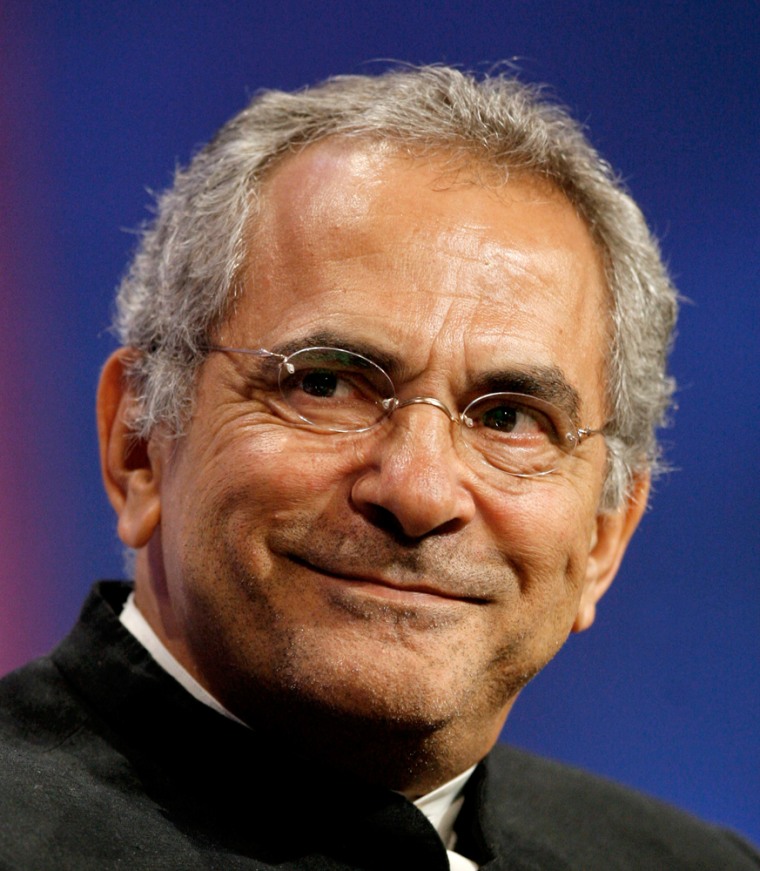Gunmen wounded East Timor President and Nobel Peace laureate Jose Ramos-Horta and shot at a car carrying the country's prime minister in coordinated attacks Monday against the leadership of the recently independent nation, officials said.
Ramos-Horta was in stable condition, while Prime Minister Xanana Gusmao escaped unhurt.
Army spokesman Maj. Domingos da Camara said notorious rebel leader Alfredo Reinado was killed in the attack against the home of Ramos-Horta, while one of the president's guards also died.
"The state came under attack," Prime Minister Xanana Gusmao said, declining to elaborate on the incidents. "The attempt to kill the prime minister and president today failed, and only the president was injured."
The attacks plunge the tiny country into fresh uncertainty after a flare-up in violence in 2006 killed 37 people, displaced more than 150,000 others and led to the collapse of the government. Security in the country has since been overseen by the United Nations.
Ramos-Horta was in "stable condition" following the shooting and was being operated on in Australian army hospital, said Gusmao and another East Timorese official.
An East Timor diplomat in Australia, Consul General Abel Guterres, told Sky television that Ramos-Horta's wounds were not life-threatening and that he would be airlifted to Darwin, Australia, for treatment.
Gusmao urged the volatile country to stay calm.
"I also appeal to the people not to spread any false rumors and information," he said.
Former head of military police involved
Two cars carrying rebels soldiers passed Ramos-Horta's house on the outskirts of the capital, Dili, at around 7 a.m. local time and began shooting, da Camara said. The guards returned fire, he said.
Alfredo Reinado, the former head of the military police, took part in the attack and was killed, said da Camera.
Reinado was due to go on trial in absentia for his alleged role in several deadly shootings between police and military units during the violence in 2006. He was briefly arrested but broke from jail later the same year and has since evaded captured and refused repeated pleas by the government to surrender.
Australian-led troops restored calm following the 2006 turmoil and peaceful elections were held in which Ramos-Horta was elected president. Low-level violence had continued in the country of 1 million people since then.
Deposed Prime Minister Mari Alkatiri has maintained Ramos-Horta's government was illegitimate. His political party immediately condemned Monday's attacks in a statement released to the media.
Lingering resentment
East Timor, a former Portuguese colony, gained independence in 2002 after voting to break free from more than two decades of brutal Indonesian occupation in a U.N.-sponsored ballot.
Ramos-Horta and Gusmao, who led the armed struggle against the occupation, have vowed to tackle rampant poverty and restore damaged relations between the country's police and army.
The Brussels-based International Crisis Group warned last month that East Timor risked lapsing back into unrest if lingering resentment following the 2006 violence was not addressed by the government and the United Nations, which is currently policing the nation.
Reinado initially said he supported Ramos-Horta's rise to power, but in recent months grew impatient with a slow response to his demands that the 600 soldiers who were fired ahead of the 2006 turmoil be reinstated to the army.
Ramos-Horta shared the 1996 Nobel Peace Prize with countryman Bishop Carlos Belo for leading a nonviolent struggle against the occupation.
